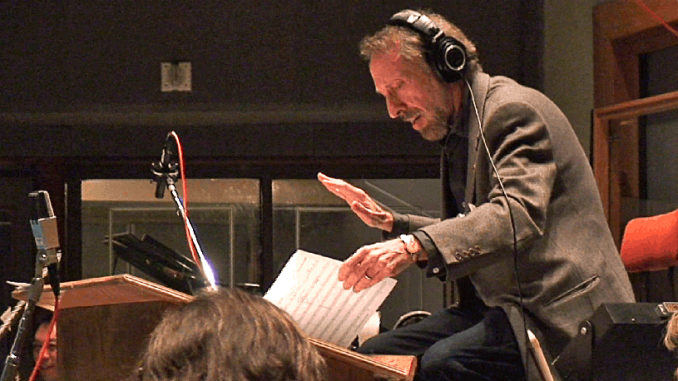
Wir stellen dieselben fünf Fragen an diverse Filmkomponisten. Simpel, kurz und bündig. Dieses Mal ist es Charles Bernstein an der Reihe.
Charles Bernstein, 1943 in Minneapolis geboren, hat sich seine musikalischen Sporen in Europa und an der Juilliard School of Music im Fach Komposition abverdient. In Paris spielte er Jazz und tingelte durch die alte Welt um in die verschiedenen Kulturen einzutauchen. In Kontakt mit Filmmusik kam er Ende der 60er Jahre.
Einen ersten gewichtigen Auftrag erhielt er 1973 mit dem Burt Reynolds Vehikel White Lightning, ein Jahr später mit Mr. Majestyk und 1976 mit einem weiteren Film mit Burt Reynolds in der Hauptrolle, Gator. Im Actiongefilde schien sich Charles Bernstein also durchaus wohl zu finden. Ab Mitte der 70er folgte eine Phase mit vielen TV-Produktionen, ehe er mit der Stephen King Verfilmung Cujo und dem Wes Craven Hit A Nightmare on Elm Street wieder zu grösseren Kinoerfolgen, dieses Mal im Gruselgenre, zurückkehrte. The Entity gilt als einer seiner besten Scores Vornehmlich blieb Bernstein aber im Fernsehen tätig (bekanntere Produktionen etwa sind Sadat, The Sea Wolf [mit Charles Bronson) oder Out oft the Ashes). Die Verwendung einhes Stücks aus White Lightning in Kill Bill Vol. 1 und in Inglorious Basterds brachte Bernstein dem Nicht-Filmmusikpublikum näher, ohne dass dieses allerdings vom Komponisten Kenntnis nahm. Bernstein hat ausserdem die Bücher „Film Music and Everything Else“ und „Film Music: An Insider’s View“ verfasst, fungiert im Board of Governors der Academy of Motion Picture Arts and Sciences und brachte 1999 die CD „Mass-Voices oft the World“ heraus.
Die fünf Fragen:
(Wir haben uns entschieden die Antworten im Original zu belassen!)
- What is your opinion about the current state and situation of film music?
CB: As Charles Dickens once said, “It is the best of times, it is the worst of times.” In many ways, composers have never had it so good. This is a time of unprecedented technological innovation and cinematic achievement. But, as in the time of Dickens, we find ourselves in a world divided. There are currently many thousands of hungry, aspiring film composers (thanks to all the new and enticing technology), and still only a small number of major films and elite working composers. Temp scores have also had an unfortunate and inhibiting effect on originality. On the positive side, thanks to some really talented composers (not just in Hollywood, but from all over the world), there are some truly wonderful and imaginative scores being written.
2. How has your working progress and relations to directors and producers changed over the years since you began working in film music?
CB: Generally, I find relations with directors and producers to be similar over the years. Some are a total pleasure to work with, and a very few are neurotic and difficult. Perhaps, as time goes on, I have learned to handle the difficult ones more easily, and I certainly enjoy the pleasant ones more than ever!
3. What is your favorite film score by yourself and why?
CB: I love different scores for different reasons. At the moment, we are assembling a CD of the 1980 Dracula satire “Love at First Bite,” and I am really enjoying it. Of the earlier films, I like “Mr. Majestyk,” “White Lightning,” Cujo,” “The Entity,” “A Nightmare on Elm Street,” and I still enjoy a number of others, including some interesting films and mini-series made for TV, like “Sadat,” “Sybil,» Enslavement,” and “Out of the Ashes.” At the moment, I am working with “Cujo” director Lewis Teague on an offbeat film that might become a favorite as well.
4. About film scores being released as listening experiences?
CB: The magic of good film music is that it can re-create the film in our minds. An effective score can evoke all the emotions and memories from the film. If the score is well written, it will also be an enjoyable listening experience on its own. No wonder there are so many fans of this unique genre of music!
5. What do you think of us film music enthusiasts?
CB: Film music fans are a very special group. They have discovered a valuable goldmine of riches. The history of movie music is filled with treasures waiting to be uncovered. Enjoy, and keep on digging!
Danke Charles fürs Mitmachen!
Phil, 17.10.2011
